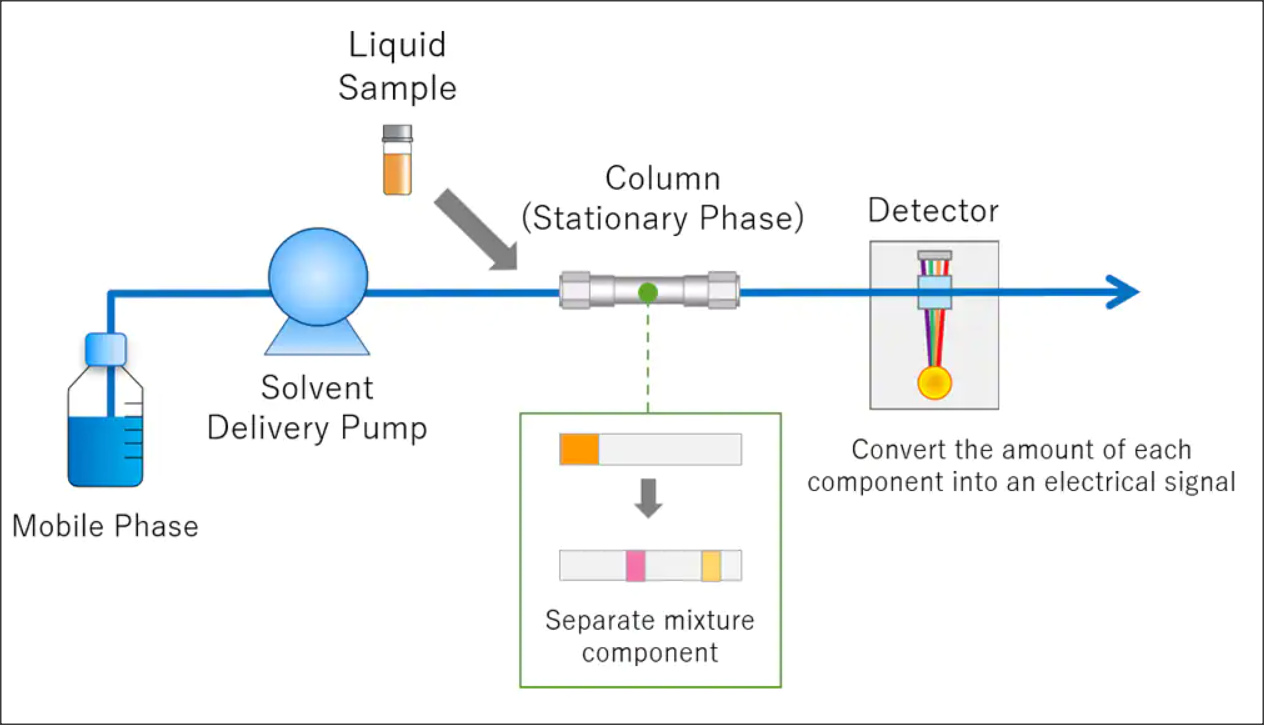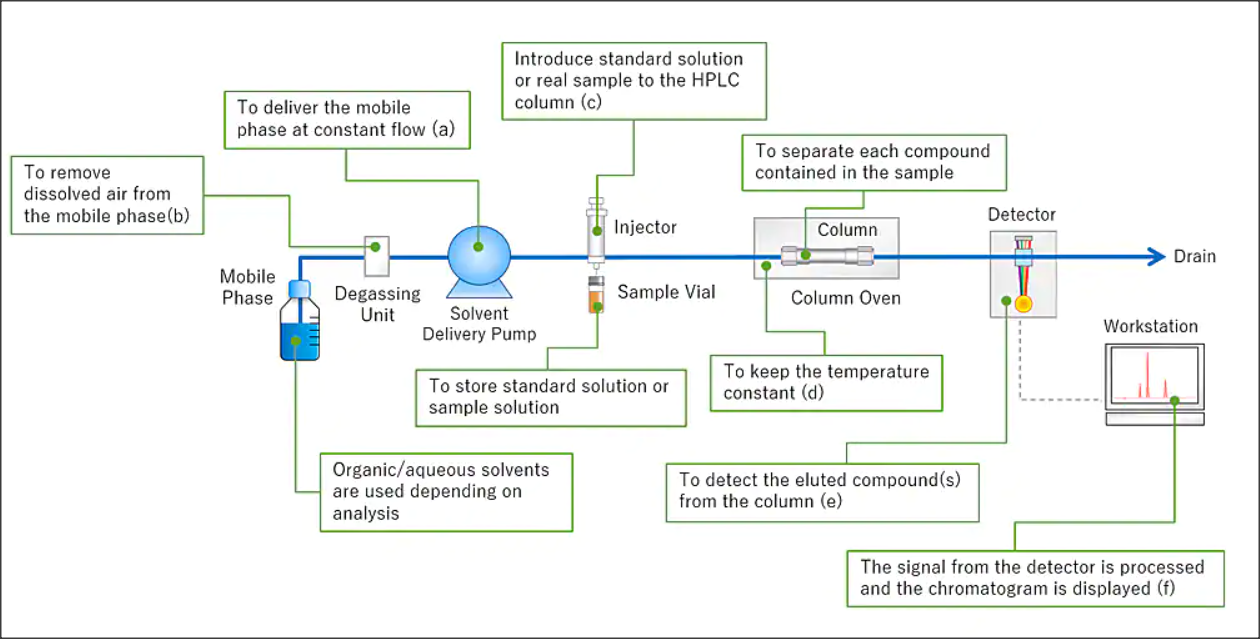HPLC Chromatography
GL Techologies has a team of experts providing HPLC chromatography calibrations and certifications for biopharmaceutical and related industries for over 2 decades. Biopharmaceutical companies of all sizes throughout California rely on the GL Technologies team for their HPLC equipment needs and requirements.
High-performance liquid chromatography (HPLC) is a powerful analytical technique used in the biopharmaceutical industry to separate and analyze complex mixtures of biomolecules. It plays a crucial role in the development and production of biopharmaceuticals, which are large, complex molecules such as proteins, peptides, and nucleic acids that are produced using living cells.
To speak with the experts about your HPLC Calibration needs, please fill out our online form or give us a call!
Trusted HPLC Chromatography Services
HPLC separates molecules based on their physicochemical properties such as size, charge, and hydrophobicity, using a stationary phase and a mobile phase. The stationary phase is typically a column packed with small beads or particles that are chemically modified to interact with the analyte of interest. The mobile phase is a solvent or mixture of solvents that carries the sample through the column.
One of the main challenges in biopharmaceutical analysis is the need for high sensitivity and resolution, as the samples can contain many similar or closely related molecules. HPLC addresses this challenge by providing high-resolution separation of complex mixtures, making it a powerful tool for quality control, process development, and formulation of biopharmaceuticals.
Different Types of HPLC Techniques
There are several different types of HPLC techniques used in the biopharmaceutical industry:
Exclusion chromatography (SEC)
Ion exchange chromatography (IEC)
Hydrophobic interaction chromatography (HIC)
Reversed-phase chromatography (RPC).
Each technique has its own advantages and is used for specific applications in biopharmaceutical analysis.

Exclusion Chromatography (SEC)
Separates molecules based on their size, allowing for the separation of large biomolecules such as proteins and nucleic acids from smaller impurities.
Ion Exchange Chromatography
IEC separates molecules based on their charge, making it useful for separating proteins and other biomolecules that have different charge properties.
Hydrophobic Interaction Chromatography
HIC separates molecules based on their hydrophobicity, while RPC separates molecules based on their polarity, making it useful for separating small molecules such as peptides and amino acids.
HPLC is used in many different stages of biopharmaceutical development and production, from early research and development to quality control and batch release. It is an essential tool for analyzing the purity, identity, and potency of biopharmaceuticals, and plays a critical role in ensuring the safety and efficacy of these life-saving therapies.
HPLC chromatography is an essential technique in the biopharmaceutical industry. It allows for the separation and analysis of complex mixtures of biomolecules, providing high-resolution separation of closely related molecules. HPLC is used in many different applications, including research and development, quality control, and batch release, and plays a critical role in ensuring the safety and efficacy of biopharmaceuticals.

Benefits of HPLC Chromatography
High Performance Liquid Chromatography (HPLC) calibration is an essential process in ensuring accurate and reliable results in HPLC analysis. Here are four benefits of HPLC chromatography calibration:
Accurate Quantification
Equipment calibration makes ure that the instruments and equipment being used are measuring the analytics and data accurately. It provides a reference point for the instrument response for a given contentration range that is pre-determined, providing the ability to obtain accurate sample analytics.
Consistent Results
In the biopharmaceutial research industry, having consistently accurate results is needed and required. Calibration will check that the instrument is functioning as needed and providing results that are reliable. This reduces the risk of erros and variables in the analyis, which could lead to incorrect conclusions.
Better Sensitivity and Resolution
Proper calibration improves the sensitivity and resolution of the laboratory instruments. The instruments parametrs such as column temperature and flow rate will improve the detection limit and the separation of closely related analytes.
Regulatory Compliance
Federal regulations keep a close eye on the biopharmaceutical research industry and require regular equipment calibration to provd the results are reliable. When calibrations are done, the organization will be able to demonstrate compliance with tehse requirements and that the validity of the results are correct to maintain the organization's accreditation.
To speak with the experts about your reverse phase HPLC Calibration needs, please fill out our online form or give us a call!
To request a quote from GL-Tec, please fill out our online form and we will get back to you promptly.
CLICK HERE TO BEGIN

